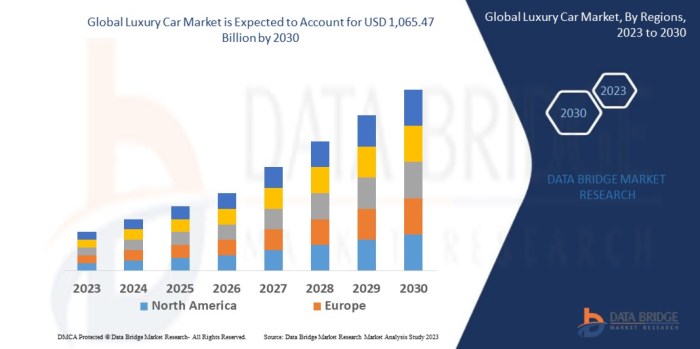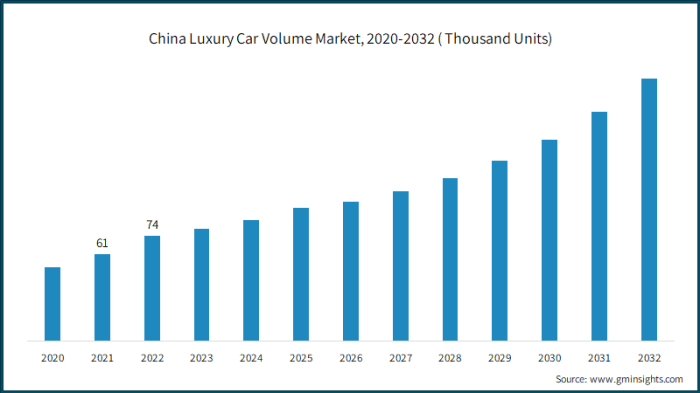Used luxury car market valuation strategies sets the stage for this fascinating exploration. From the fluctuating tides of supply and demand to the intricate dance of technological advancements and economic shocks, this analysis delves into the multifaceted world of valuing pre-owned high-end vehicles. Understanding the interplay of these forces is crucial for anyone navigating this market, whether a seasoned investor or a curious enthusiast.
Understanding used luxury car market valuation strategies is crucial for informed decisions. Factors like condition, mileage, and market demand all play a role. Furthermore, securing appropriate luxury car insurance options for high-value vehicles, like luxury car insurance options for high-value vehicles , is equally important for protecting your investment. Ultimately, a comprehensive understanding of both valuation strategies and insurance options is essential for navigating the used luxury car market successfully.
The report scrutinises various valuation methodologies, comparing and contrasting comparative market analysis, depreciation models, and auction data analysis. It highlights the impact of crucial factors like mileage, condition, and customisation on resale value, providing a robust framework for understanding the complexities of the used luxury car market. A deep dive into data sources, from dealer listings to online marketplaces, and the crucial role of regulatory frameworks are also discussed.
The aim is to equip readers with the knowledge needed to make informed decisions in this high-stakes arena.
Used Luxury Car Market Valuation Strategies

Source: databridgemarketresearch.com
The used luxury car market is a dynamic arena, shaped by a complex interplay of market forces, technological advancements, and economic conditions. Understanding these influences and utilizing effective valuation strategies is crucial for informed decisions in buying, selling, or investing in pre-owned luxury vehicles.
Market Trends and Influences, Used luxury car market valuation strategies

Source: gminsights.com
Recent trends reveal a fluctuating used luxury car market. Supply and demand remain a primary driver, often influenced by factors like limited supply of certain models and fluctuating consumer interest. Technological advancements in vehicle diagnostics and data analysis are enhancing valuation precision. Economic downturns can impact demand and pricing, while economic booms can lead to increased demand and potentially higher prices.
Events like global crises or industry disruptions can cause significant volatility in the market, affecting valuations.
- Recent trends show a rise in demand for specific luxury models, while others have seen a decline, impacted by factors such as limited production runs and enthusiast interest.
- Economic conditions play a critical role. During periods of economic uncertainty, demand for luxury goods often declines, impacting used luxury car prices. Conversely, periods of economic prosperity can lead to increased demand and higher prices.
- The emergence of new market segments, such as those focused on sustainable luxury vehicles or collector cars, is reshaping the market, influencing valuation strategies.
| Economic Indicator | Description | Impact on Used Luxury Car Prices |
|---|---|---|
| GDP Growth Rate | Measure of economic expansion | Positive correlation; higher growth often leads to higher prices |
| Unemployment Rate | Percentage of unemployed individuals | Negative correlation; higher unemployment often leads to lower prices |
| Interest Rates | Cost of borrowing money | Complex correlation; higher rates can curb demand, potentially leading to lower prices. |
Valuation Methodologies
Several methods are used to evaluate used luxury cars, each with its own strengths and weaknesses. Comparative market analysis compares similar vehicles based on factors like mileage, condition, and features. Depreciation models predict the decline in value over time, often using statistical formulas based on vehicle age, mileage, and market trends. Auction data analysis leverages sales data from auctions to establish market benchmarks.
- Comparative market analysis is a common method, but relies on finding comparable vehicles that are in the same condition. This method can be less reliable if there aren’t many comparable cars.
- Depreciation models provide a structured approach, but their accuracy relies on the accuracy of the data used and assumptions made. Factors like accidents or significant modifications can significantly impact these models.
- Auction data analysis offers real-time market insights, but auction prices can be influenced by factors like seller motivations or unique bidding dynamics.
| Method | Strengths | Weaknesses | Applications |
|---|---|---|---|
| Comparative Market Analysis | Simple, readily available data | Reliance on finding comparable vehicles, potential for bias | Quick valuations for general market trends |
| Depreciation Models | Predictive capability, structured approach | Sensitivity to model assumptions, potential for inaccuracy | Estimating long-term value, planning investment strategies |
| Auction Data Analysis | Real-time market insights, auction prices are a direct indicator | Auction prices can be influenced by factors other than market value, like seller motivation | Identifying current market trends, estimating upper and lower bounds for valuations |
Data Sources and Collection
Accurate valuations rely on a comprehensive approach to data collection. Dealer listings, auction results, and online marketplaces provide valuable insights. However, potential biases exist, such as seller-induced price inflation in dealer listings or the lack of detailed data in online marketplaces. Data cleaning is essential to remove outliers and ensure accuracy.
- Online marketplaces offer a vast pool of listings, but data quality and accuracy can vary significantly, requiring careful screening.
- Dealer listings often reflect the dealer’s desired price, potentially influencing the accuracy of valuations.
- Auction results provide real-time market data, but the specific circumstances of each auction (e.g., buyer motivations) can affect price.
Conclusive Thoughts
In conclusion, navigating the used luxury car market requires a thorough understanding of valuation strategies. This report has explored a comprehensive range of methods, from market analysis to sophisticated modelling, providing a framework for appraising these prestigious vehicles. By understanding the factors influencing depreciation, market segmentation, and legal considerations, individuals and businesses can make more confident and informed decisions.
From the nuances of specific market segments to the impact of economic trends, the report provides a comprehensive guide to this ever-evolving market.

